What to do if your puppy keeps biting you, by expert trainer Ben Randall
Getting a new puppy is a joy — most of the time. But it's not always easy, especially if your new pup starts nipping and doesn't stop. Ben Randall shares his advice on what to do when reality bites.

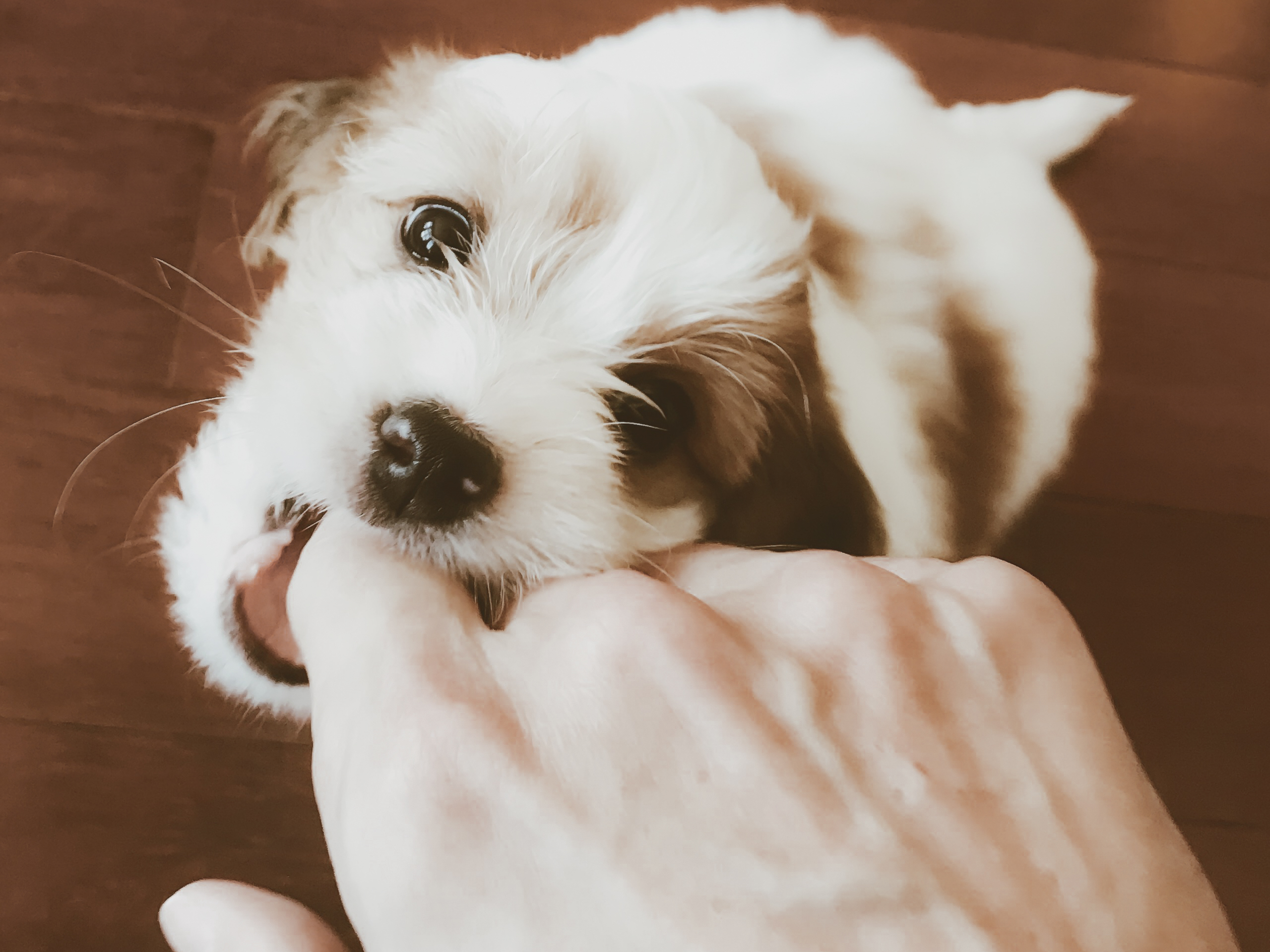
At first, it’s all lovely puppy cuddles and snuggles and you can’t quite believe that this adorable youngster is now a part of your life. However, reality soon bites — often quite literally, as your baby shark starts to enjoy sinking his or her teeth into you with alarming regularity.
Of course, it’s all fun and games — an essential part of any young dog growing up and teething — but this biting issue can become a worry. You'll need to nip it in the bud before it becomes a bigger problem. The question is 'how?'
This is exactly the predicament that L.F. from Warwickshire is having, who shared her concerns via our paws-for-thought@futurenet.com email address:
Dear Ben, my boyfriend and I have recently got our first dog, a really sweet poodle x Lhasa Apso cross called Betty. She is now 10 weeks old and a complete delight in so many ways, apart from the fact that she seems to enjoy biting and nipping me. The other day, when I bent down to give her a fuss, she jumped and bit me on the lip, which was really quite painful. She isn’t doing this with malice and I know she’s only playing, but how should I handle this?
I can honestly say with all the puppies that I have bred and trained myself over the past 30 years or so — thanks to my BG training regime, which I have been developing for decades now — I hardly ever experience this. However, I do see this issue on a daily basis with my clients’ new puppies and young dogs.
So, I have to ask why is this happening with them and not me? I believe that it’s because, in most cases, they have enrolled in a puppy pet class where the training involves constant bribery with food and lots of over-excitement and play.
Often, these courses also advocate playing tug-of-war and chasing games with your dogs. New owners are told to buy a tug rope tug from the pet shop and teach their puppy to play tug in a bid to keep them occupied and burn off energy. The trouble with this advice, however, is that when you don’t have a toy with you, your feet, hands and trousers — and sometimes even your face — become a tug-of-war game.
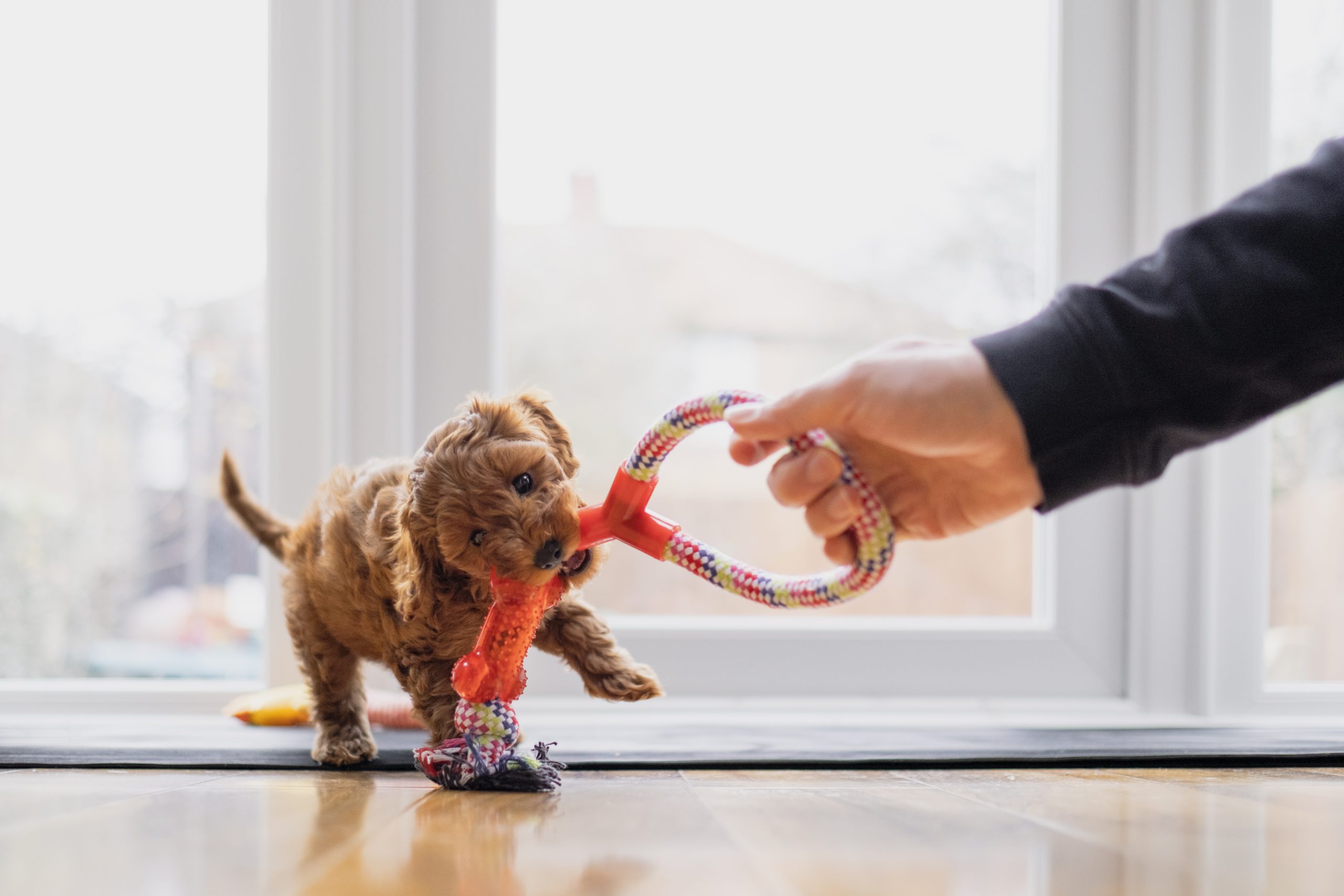
I therefore strongly believe that it is not wise to play tugging or chasing games with your young dog, even if they are going to be a pet and not a working dog. I avoid these types of games, as I like to interact far more with my puppy in a calm and more structured way, in terms of building their foundations for life.
Exquisite houses, the beauty of Nature, and how to get the most from your life, straight to your inbox.
I also want my puppy to sleep and relax for a high percentage of time, so that it learns to switch off in all sorts of situations. Therefore, whilst I am pottering around the family home, doing my normal household duties, I like to see my puppy asleep in the bed in the kitchen, totally relaxed and not bothered by what I — or anyone else — is doing.
I’ve been perfecting my BG (Beggarbush) foundation methods for nearly 20 years and know that the best way to have a happy and chilled out puppy is to teach steadiness and restraint at meal times. You can learn more via @beggarbush on Instagram and my dog-training app (this link will let you get a free trial) or ask me your own question by emailing paws-for-thought@futurenet.com.
Ben’s top three tips for teaching your puppy to be calm and quiet
1. Use meal times to teach patience and composure
As we feed puppies three or four times a day, when have more opportunities to use meal times to teach their foundation commands for life, including:
And, by doing this, you’ll very quickly start to build a bond and a relationship with your puppy a minimum of four times a day. Then, afterwards, apart from taking your puppy outside to go to the toilet, he or she will learn to happily relax and chill out, ready for the next fun feed time.
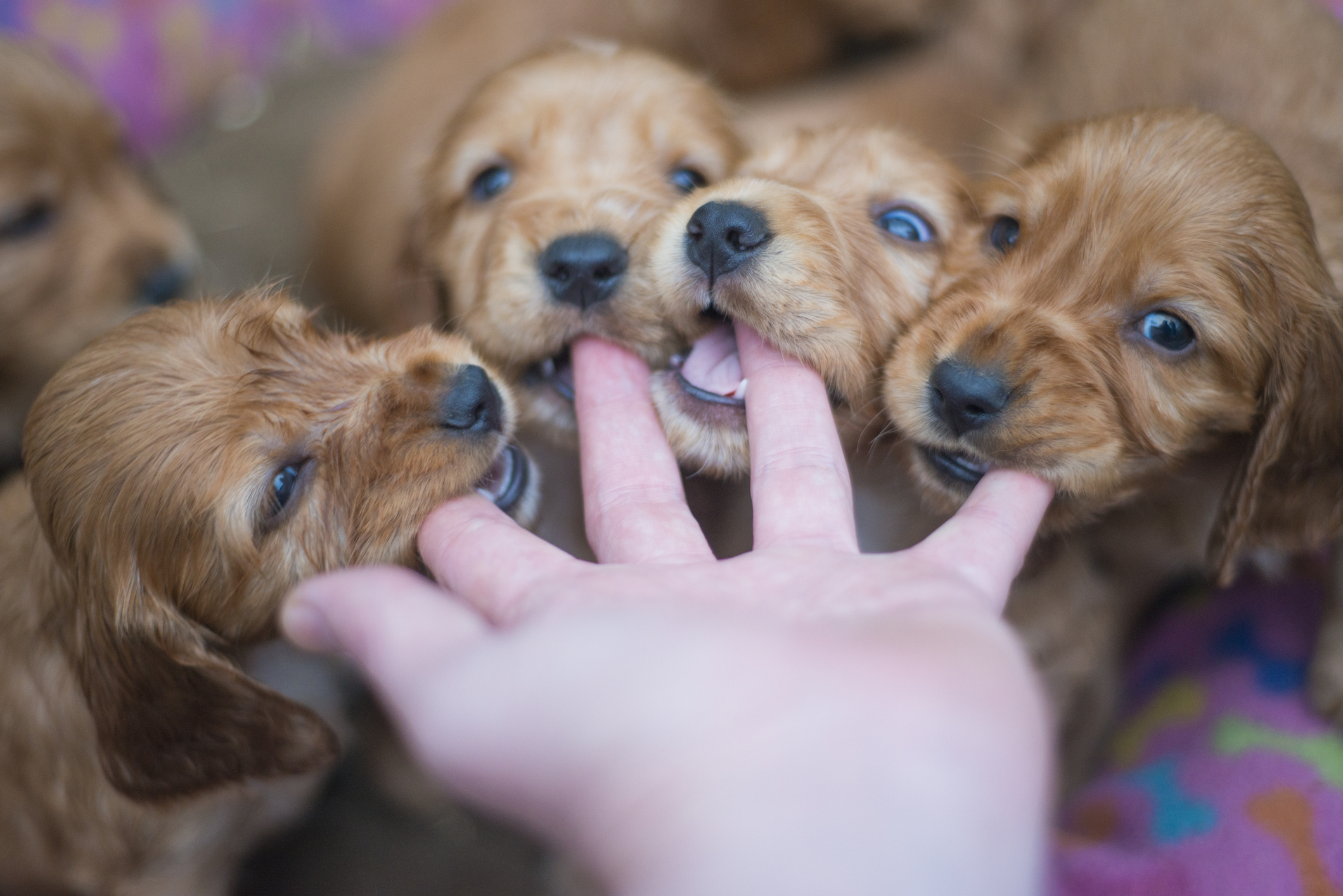
2. The ‘leave’ command is by far the most important
One of the most important words to teach is the ‘leave’ command (which you can read about here). When taught over the course of a month, your dog will start to leave everything when requested. So, if your puppy does try to nip or bite, they will now fully understand the leave command.
3. Being calm and consistent is key
As I always explain in my training, the biting or yipping — or any unwanted behaviour — is usually always caused by not implementing the foundation commands correctly or consistently.
More often than not, when you take a close look at this issue, your pup or young dog’s over-excitement is usually caused by your own actions. Be honest with yourself — do you crouch down and talk to your dog on its level in a silly high-pitched voice? If so, it’s hardly surprising that they get wound up and start launching themselves at your arms or face.
I therefore strongly recommend making a concerted effort to try — at all times — to be very calm and very quiet around your pup. However, this will also require you to firm — and by this I mean in the tone of your voice — if need be, especially if they jump or bark and bite.
4. Reward them for being quiet and relaxed
Whenever I ask my puppy to go into their bed or crate, I make sure I reward them each and every time with a treat or chew of some description — usually a deer antler or some type of hoof that takes a long time to get through — so they see their crate or bed as a safe and comfortable place to stay.
If you implement these steps over the next few weeks, I can guarantee you will soon have a far more relaxed and easy dog that is happy to switch off and chill.
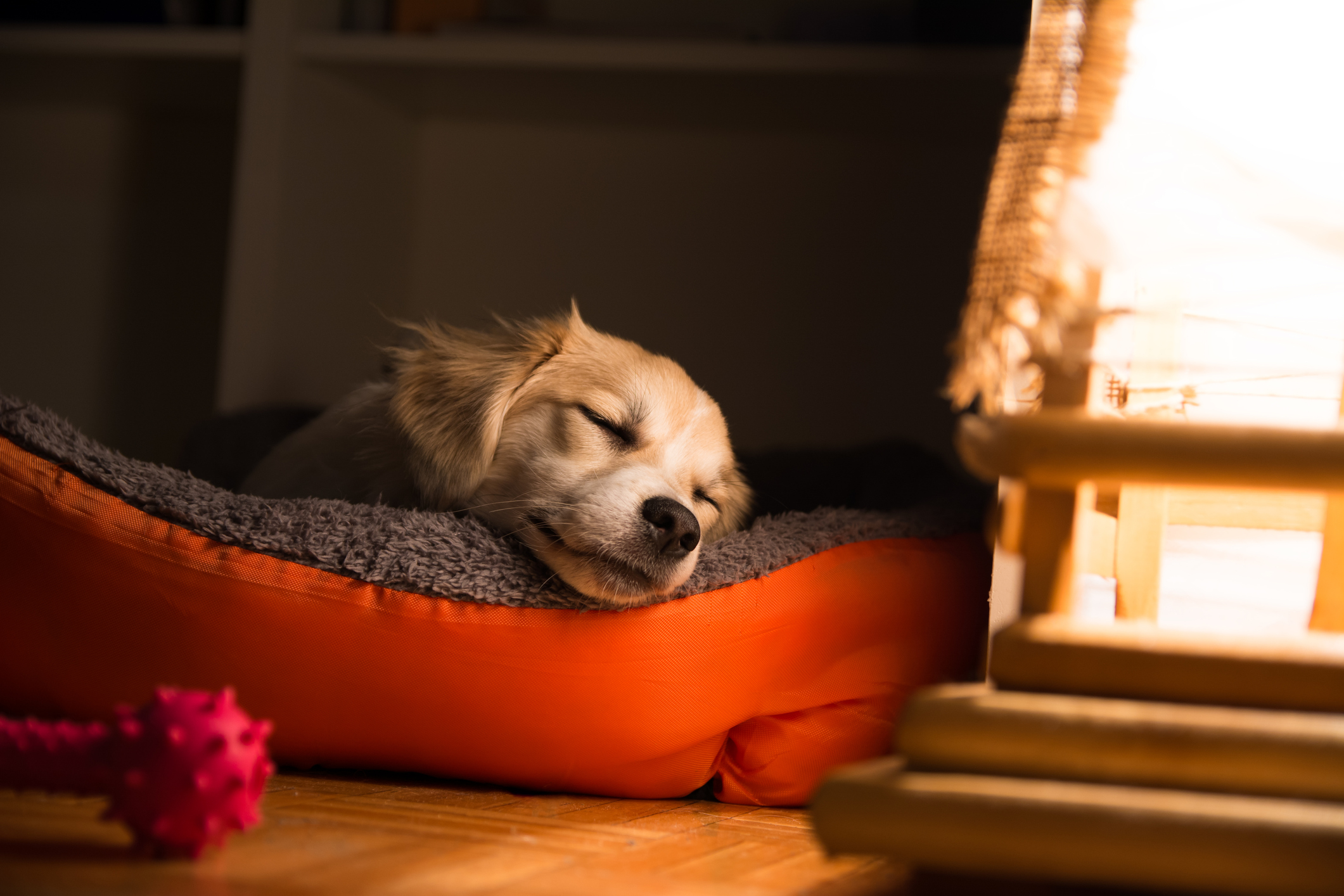
For more detailed advice about Ben Randall’s positive, reward-based and proven BG training methods, one-to-one training sessions, residential training or five-star dog-boarding at his BGHQ in Herefordshire, telephone 01531 670960 or visit www.ledburylodgekennels.co.uk. For a free seven-day trial of the Gundog app, which costs £24.99 a month or £249.99 a year, visit www.gundog.app/trial
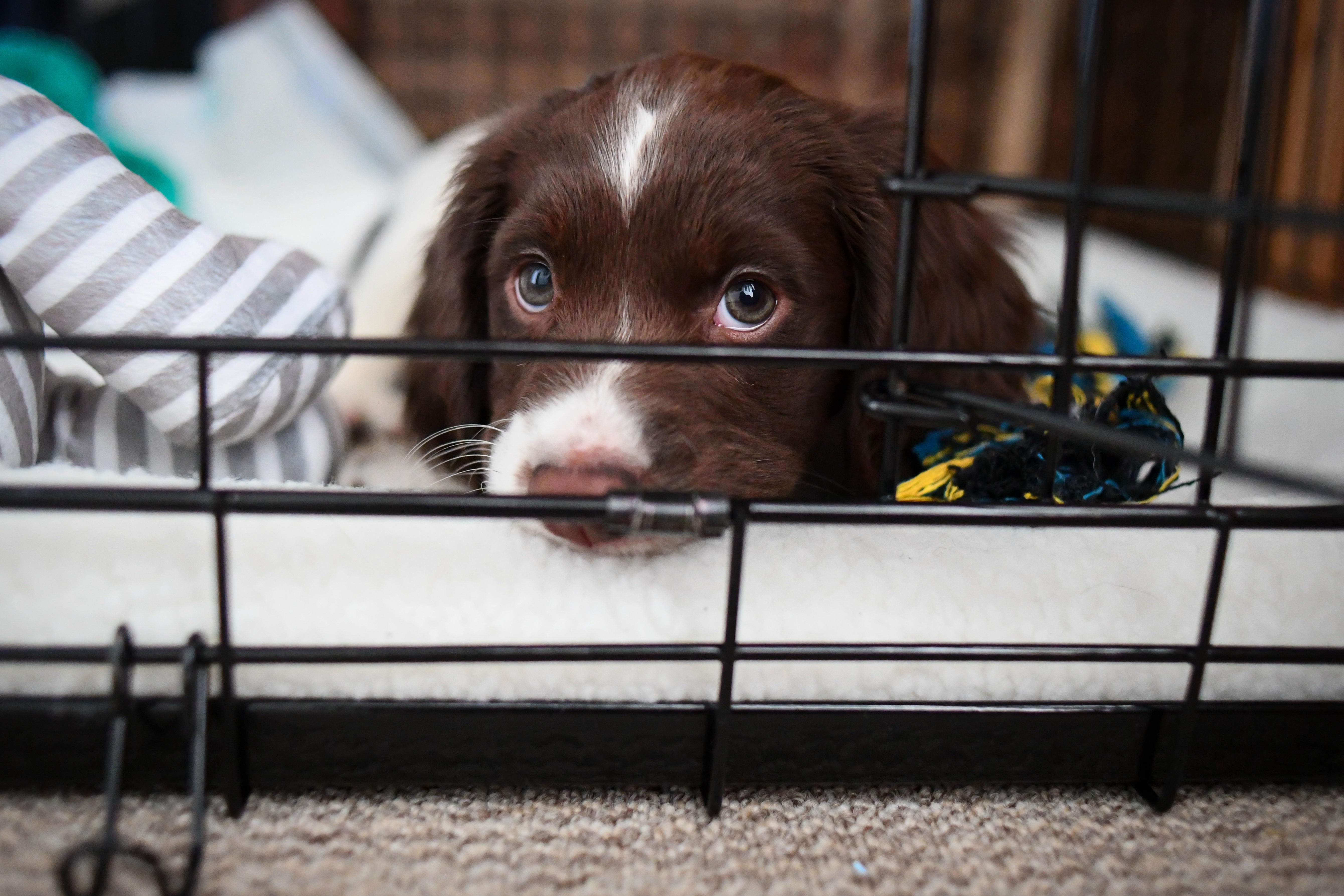
Crate training a puppy: Six tips from expert dog trainer Ben Randall
Puppy crate training can be tricky, yet it can pay dividends in all sorts of ways — even making puppy toilet
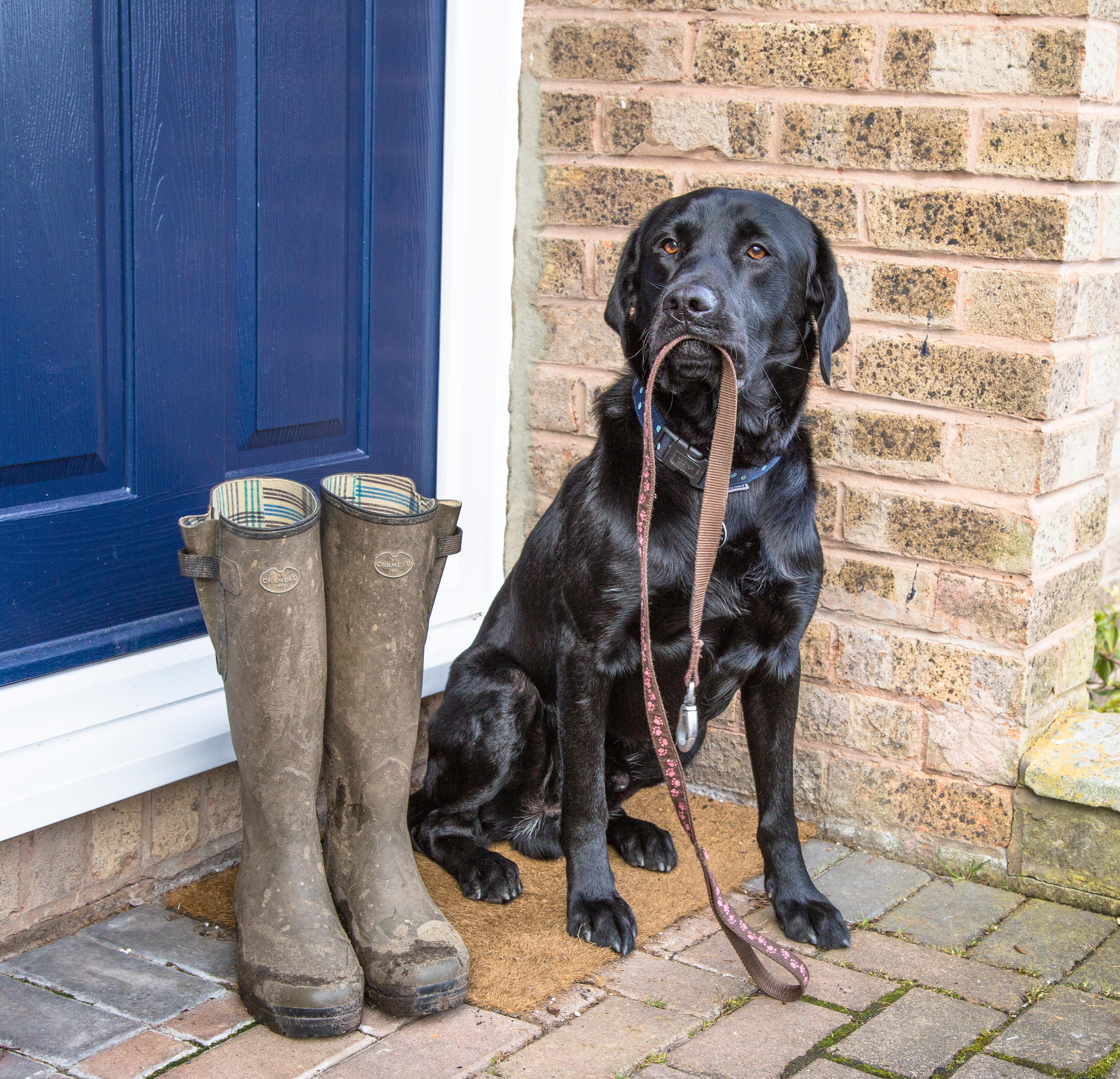
Credit: Ros Crosland / Alamy
Dog lead training: How to introduce the lead to your four-legged friend, by champion dog trainer Ben Randall
Introducing the lead to your dog can be tricky, but with a consistent routine you'll build positive associations that will
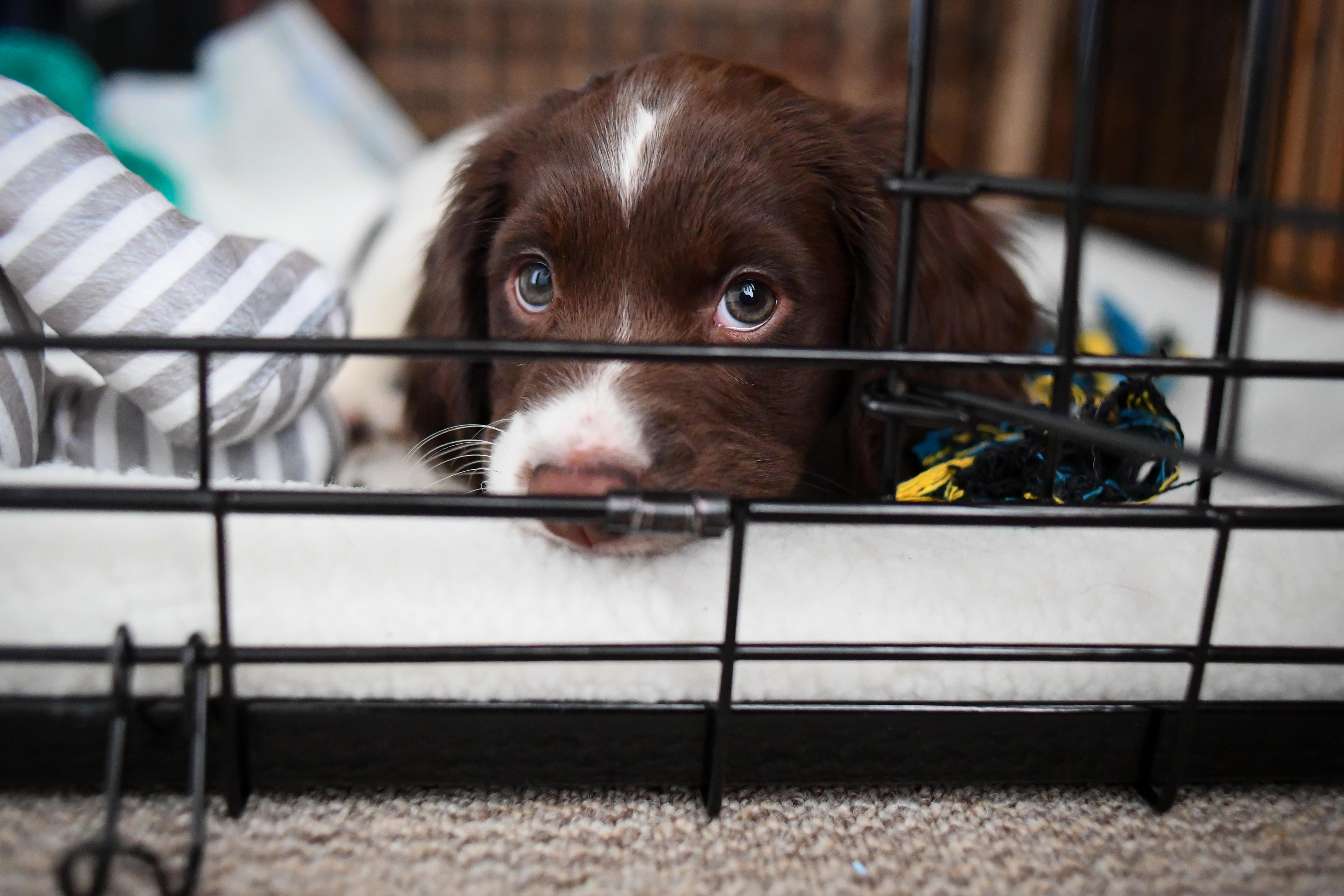
Credit: Alamy
How to stop your puppy crying at night, by dog training expert Ben Randall
The heartbreaking whimper of a puppy calling for you will tug on the heartstrings like few other things, but you
